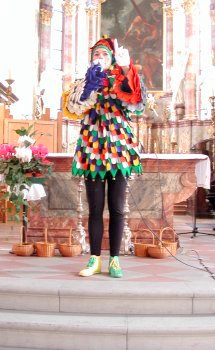Sean, a buddy of mine and long-timer reader of this blog, made a comment that I think ought to be highlighted. Responding to my post about an atheist’s argument against the veracity of Jesus Christ’s claims, and a mutual friend’s comment, he wrote the following.
"My God isn’t some pie in the sky, and He’ll change your life if you’ll let him."
This gets to the root of why I’m not religious. Everyone says something long these lines. Everyone wants me to make a leap of faith, but no one has been able to give me a reason to leap into their religion over the other ones, without out first making a leap of faith. (I hope that paragraph isn’t too contorted)
Nope, it’s not too contorted. You don’t want to look before you leap, especially since most if not all religions claim to be exclusively true. They can’t all be right. To which should you leap?
I’d like to open this up to discussion. What reasons would you give Sean to have faith? Why is Christianity right while other religions are wrong (or at least less right)? I’m sure Sean will let us know which reasons have been beaten to death and carry no currency with him, so let’s avoid the well-worn apologetical arguments. Perhaps some of you are fomer atheists or agnostics yourselves. What convinced you?
